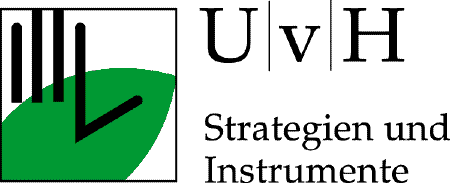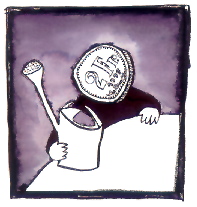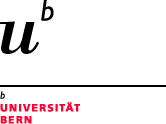home universität > IKAÖ
Interfakultäre Koordinationsstelle für Allgemeine Ökologie (IKAÖ) |

Forschung

Water and waste water taxes and user charges
André Müller, lic. rer. pol.
Heini Sommer, Dr. rer. pol.
Felix Walter, lic. rer. pol.
David Kramer, lic. rer. pol.

|
"We want to protect our water resources with environmental taxes and polluter-pays oriented user charges" Heini Sommer |
Goals
We would like to improve our knowledge about a successful introduction of taxes and polluter-pays oriented user charges for water and waste water. Furthermore, we are interested in the impact of such taxes and user charges.
The objective of the research proposed is to test the following hypotheses:
- Hypothesis 1: During the political process, these taxes lose their originally intended incentive effects. Finally, their only effect is to finance the tasks in the waste water and water sector without really affecting the behaviour of the polluters.
- Hypothesis 2: These taxes and charges have a considerable impact on the behaviour of the polluters (or resource consumers, respectively), individuals, firms as well as public institutions. This makes the implementation of control and command measures much easier or even unnecessary.
- Hypothesis 3: Such taxes and charges are more successful if they are introduced parallel with communication and some regulative activities and if the actors concerned (industry, waste water plant managers etc.) are involved timely and to a large degree in developing these measures.
Questions
Our research project deals with the following questions:
- Which are the obstacles to the implementation of taxes and polluter-pays oriented user charges for water and waste water? To what extent do these barriers correspond to other environmental fields (e.g. waste, air pollution)?
- Which individuals or parties involved have contributed to clearing these barriers and by which means? Is it possible to deduce general potentials and possibilities of getting past obstacles in other environmental fields?
- How can the change in behaviour caused by taxes and charges be assessed? Have improved technologies and operational procedures been implemented? How does the significance of existing regulations change (e.g. emission standards for water treatment plants)? Are there any side effects to the taxes and charges?
Methods
Two complementary methodological approaches are proposed:
- Firstly: Data on water, waste water and pollutant flows will be statistically analysed to test the influences of alterations in the taxes and charges (econometric/regression analysis). This analysis shows the ecological impacts of taxes and user charges as well as their contributions to reaching environmental objectives compared to other policy measures (e.g. regulations).
- Secondly: The answers from qualitative interviews of actors and experts shall help to validate and interpret the results of the above findings. They are also a key to understanding the barriers to the implementation of polluter-pay oriented taxes as well as the barriers to adaptations in the behaviour of the actors after introducing the taxes.
André Müller
ECOPLAN
Heini Sommer
ECOPLAN
![]()
Interfakultäre Koordinationsstelle für Allgemeine Ökologie (IKAÖ) der Universität Bern (1988-2013)
© Universität Bern
29.09.2005
| Impressum
